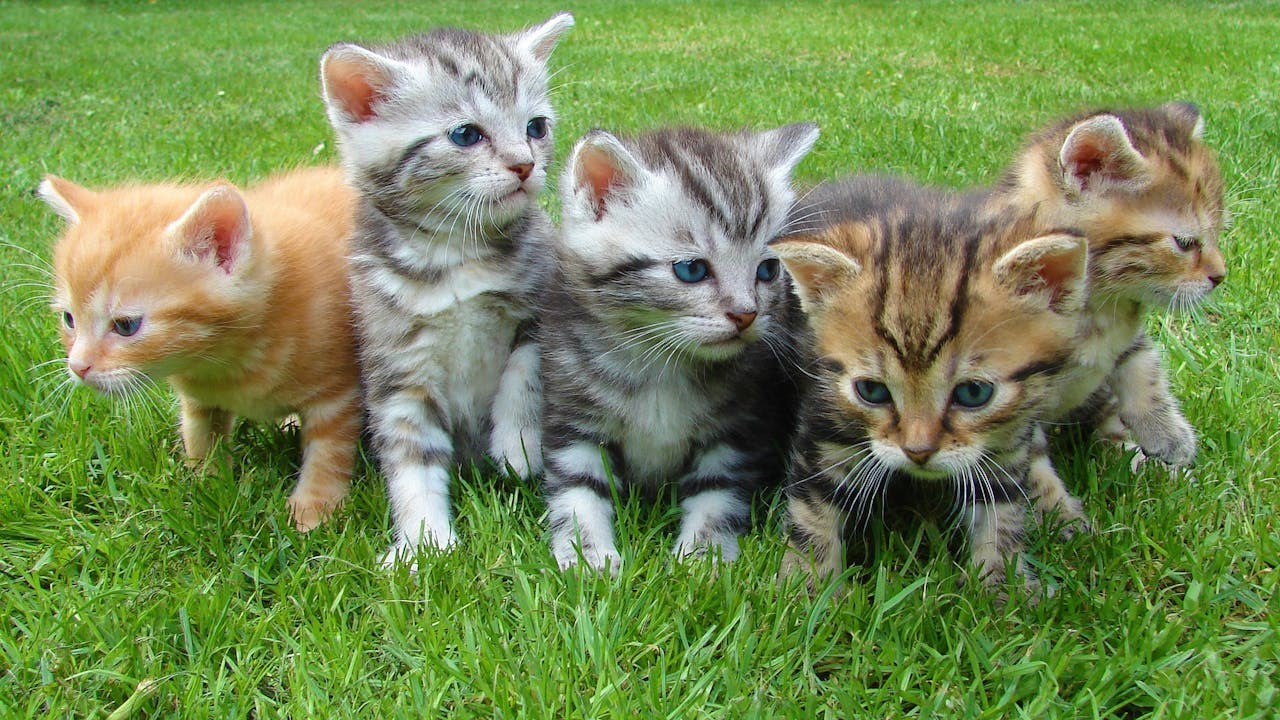All Pets Veterinary Medical Center Cats and Kittens
All Pets Medical Center of College Station, Texas is an AAHA Accredited Referral Practice, an AAHA Accredited General Practice, and an AAFP Cat Friendly Practice. Our care team works with your cat to make his or her visit a comfortable experience while our doctors and staff address your kitten's and adult cat's healthcare and environmental needs.
Dr. Rupley and our team are committed to the whole well-being of your cat including at-home lifestyle, past medical history, and current health. We recommend annual preventative exams, vaccinations, and routine blood testing as a comprehensive wellness plan. We involve you in the medical process so that you can make informed decisions about your pet's healthcare.
Physical Exams
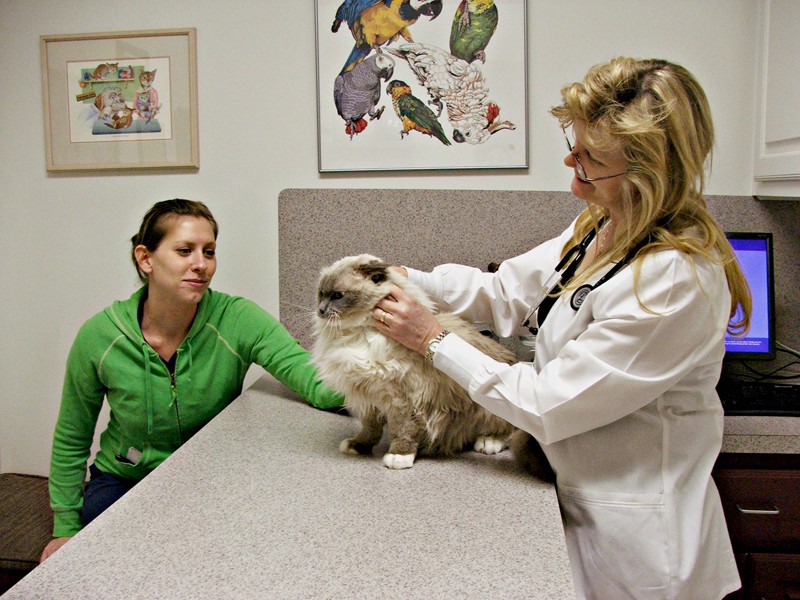
A skilled and knowledgeable technician will ask you several questions to better understand your pet's circumstances and to get to know you better as a client and patient. Our doctor will examine your cat from nose to tail and provide you with an explanation of their findings. Based on physical exam findings, our doctor will discuss treatment options to address any known health issues.
Our doctors recommend a complete physical exam once yearly for younger cats. For senior cats, we recommend a physical exam every 6 months.
Heartworm Prevention
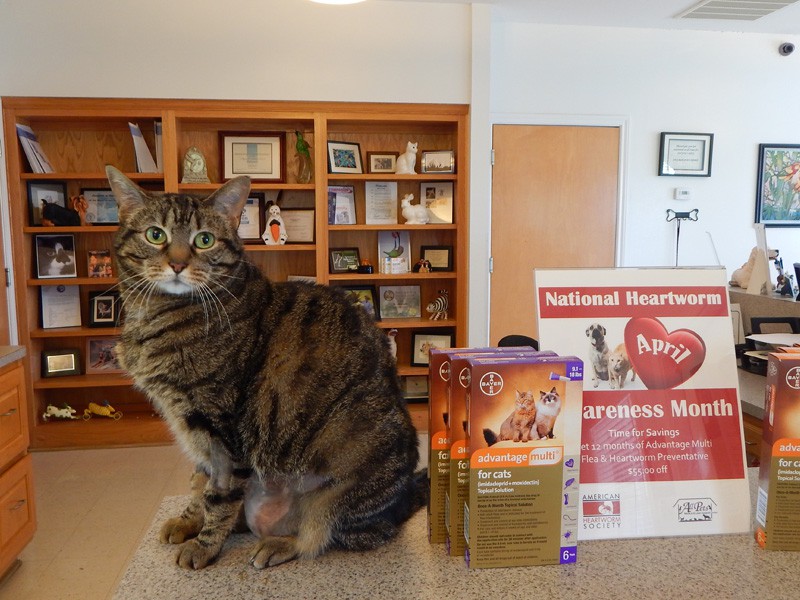
Heartworm infections are transmitted by mosquitos and pose a significant risk in our wet and warm regions to both inside and outside pets.
Due to the year-round presence of mosquitos, our doctors recommend year-round heartworm prevention. We offer affordable and convenient once-monthly topical medication to prevent infection. A heartworm test is required before administering heartworm preventative.
Feline Vaccination
Our doctors recommend non-adjuvanted vaccinates for cats and ferrets. By removing the adjuvant, the risk of injection-site cancers is reduced.
Feline Rabies Vaccination
Rabies can be transmitted to domestic cats through a bite from an infected disease carrier such as foxes, raccoons, skunks, or bats. Vaccinating against rabies is required by the city of College Station, Bryan and other areas of Brazos County.
Our veterinarians recommend a single vaccination at or after 12 weeks of age then once annually.
FVRCP Vaccination
FVRCP immunization is commonly referred to as feline distemper. Vaccinating protects against common airborne viruses rhinotracheitis, calicivirus, and panleukopenia.
Our doctors recommend an initial vaccination at 6 weeks of age then every 3 weeks until the cat is 16 weeks old. A booster vaccination is recommended after 1 year. Titers every 2 years or vaccinating every 3 years is recommended.
Feline Leukemia Vaccination
Feline leukemia (FeLV) is one of the leading causes of early death in cats. The virus can suppress a cat's immune system and cause anemia or lymphoma.
A cat cannot be cured of the virus if contracted. Our vets recommend an initial vaccination at 8 weeks and a booster 3 weeks later. After this, vaccination is recommended 1 year later. For exposed cats, vaccinating every 2 years is recommended.
Preventative Testing and Screening
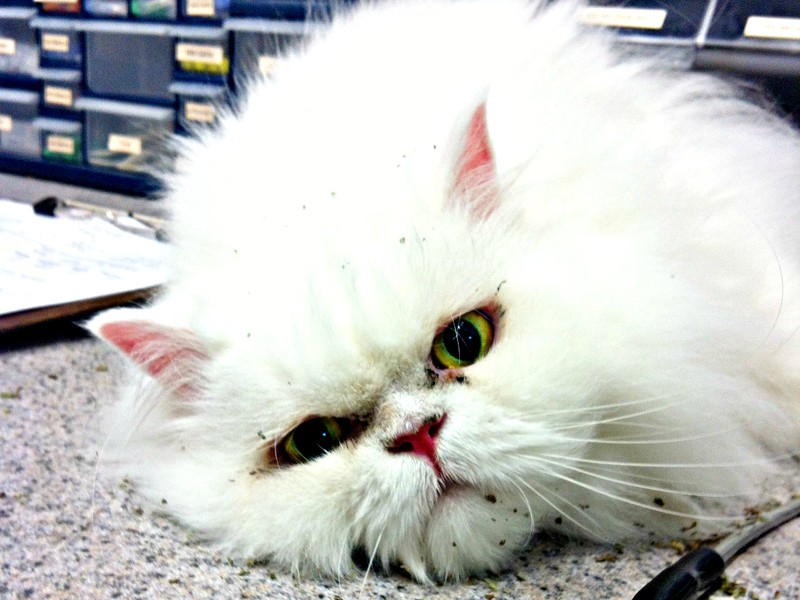
Intestinal Parasite Screening for Cats
A periodic microscope examination of your pet's stool is recommended for the early detection and treatment of intestinal parasites. Some of these parasites are zoonotic, meaning they can infect their owners. An intestinal parasite flotation and direct smear are performed to detect the presence of parasites and parasite eggs.
Our doctors recommend once-yearly screening for intestinal parasites.
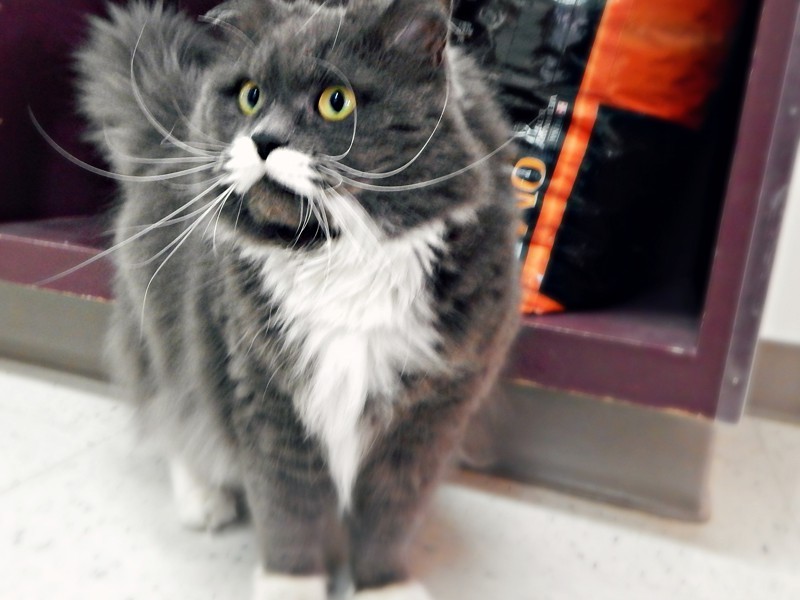
Feline Leukemia and Feline Influenza Virus
Any new cat entering a household and cats who potentially have exposure to FeLV or FIV positive cats should be screened annually for the disease.
Feline Heartworm Testing
Heartworms are not just a concern for dog owners, cats can be infected too. Heartworm infections can result in cardiopulmony disease, organ failure, and a decreased quality of life. Our veterinarians recommend yearly prevention and once yearly testing for the presence of heartworm antibodies.
Chemistry Panel
Blood chemistry testing provides information to our doctors regarding your cat's liver and kidney function. Certain diseases affecting the liver, kidneys, pancreas, and intestines can be detected through the use of a blood chemistry panel.
Complete Blood Count
A complete blood count provides our veterinarians with tools to detect health issues such as leukemia, extreme stress, inflammation, or the presence of infections.
Our veterinarians recommend that a CBC be performed once yearly.
Urinalysis for Senior Cats
Generally recommended for senior cats (over 7 years), a urinalysis is a test to assess your pet's overall urinary tract health. A urinalysis gives our doctor insight into your cat's kidney and bladder function as well as glucose regulation and liver function.
Total T4 & Cholesterol Test
Hypothyroidism is the condition of inadequate active thyroid hormone. A common human ailment, it is the most common hormone imbalance of cats. A T4 & Cholesterol test is used to detect an overactive thyroid gland in your cat.
The T4 tests measure the amount of thyroxin in your cat's blood. Thyroxin is critical for regulating the growth and metabolism of your cat. An imbalance of this hormone can lead to thyroid disorders. Overproduction, also known as hyperthyroidism, leads to the increased rate of the metabolism and heart rate, weight loss, intolerance to heat, increased breathing rate and nervousness. Typically, middle-age to older cats are diagnosed with hyperthyroidism.
Underproduction of this hormone is called hypothyroidism. This causes a decreased metabolic rate, decreased heart rate, weight gain, intolerance to cold, infertility, constipation, high blood cholesterol, dry skin and hair loss.
Digital Radiographs
Radiography is an imaging technique that uses electromagnetic radiation to see the internal structures of a non-transparent object like your senior cat. Heart disease, cancers, and fractures can all be detected through the use of radiographic imaging (X-rays). In addition to our on-site doctor's review, All Pets Veterinary sends all radiographs to a board certified specialist.
Additional Testing Available
FVRCP Titers Test for Cats
A titer is a measurement of how much antibody your cat produces that recognizes a particular virus. The results indicate whether or not a vaccine needs to be administered to provide protection. If a high amount of the antibody that recognizes FVRCP is present, re-vaccination is not necessary. Reducing vaccinations in cats decreases the risk of sarcomas (cancerous lesions) caused by vaccines.





